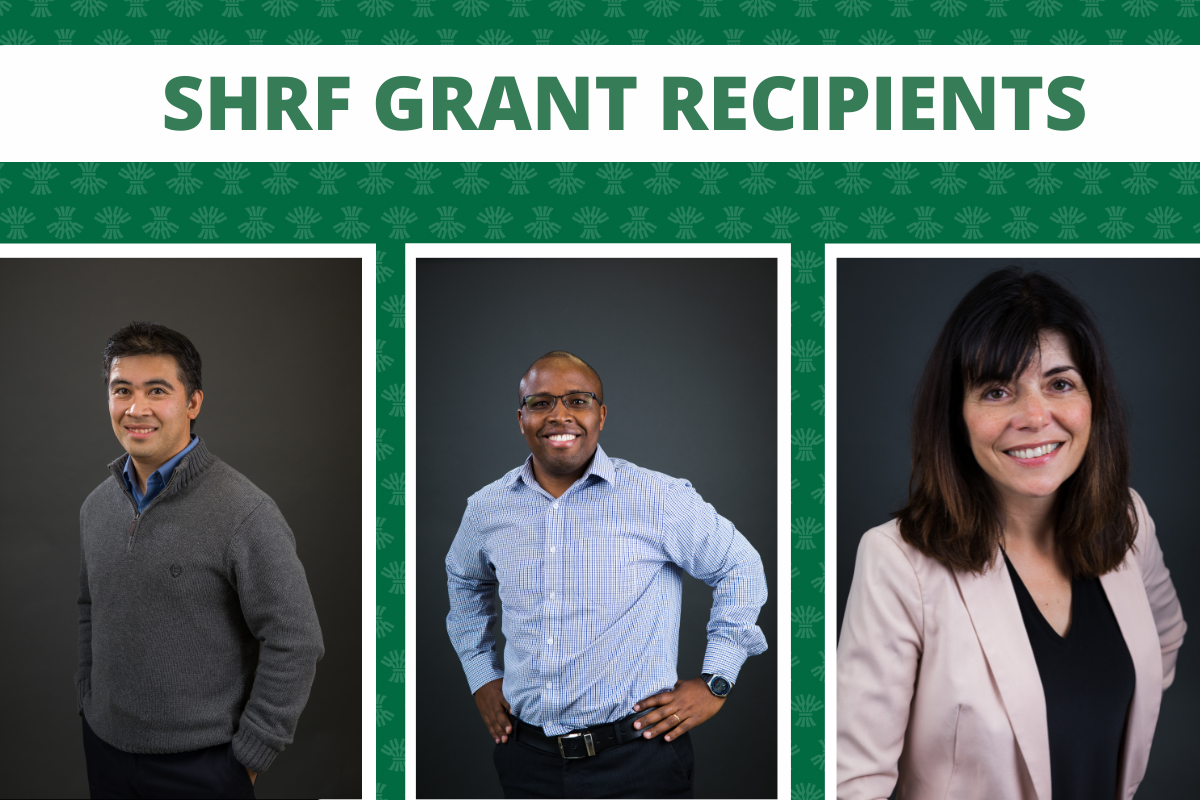
100% Success in SHRF Innovation Grant Competition
Three College of Nursing research teams celebrate SHRF grant success.
Congratulations to three University of Saskatchewan (USask) College of Nursing research teams, who have received Saskatchewan Health Research Foundation (SHRF) 2021-2022 Solution – Innovation grants! Together, over $140,500 of research will be funded over the next year. 100% of USask College of Nursing grant submissions were successful in this competition.
“There is excellent research taking place in the College of Nursing and this latest success in the SHRF competition is a good example,” said College of Nursing interim associate dean research Dr. Pammla Petrucka (PhD). “These nurses are leading innovative research that will have a direct impact on people in Saskatchewan – they are truly making a difference right here at home.”
Project Title: Building Connections, Exploring Possibilities, and Reducing Harm for Staff and Persons with Substance Use Disorders within The Lighthouse Facility
Principal Investigator: Dr. Anthony de Padua (PhD), Assistant Professor, USask College of Nursing, Prince Albert Campus
The Lighthouse organization is a non-profit housing provider that offers affordable housing, supportive living, and emergency shelter for adults in Saskatoon, SK. Their philosophy of care is based on trauma-informed care and through a harm reduction lens. Within the Lighthouse, there is a Lighthouse Stabilization Unit serving the homeless and those who are under the influence of alcohol and drugs. The purpose of this research project is to explore and provide recommendations on how the existing Lighthouse Stabilization Unit can be transformed to better meet the needs of clients through the lens of the clients and staff that are interviewed.
Project Title: Creating Space for Immigrants to Speak up About Substance Use in Regina and Addiction in Their Communities
Principal Investigator: Dr. Geoffrey Maina (PhD), Assistant Professor, USask College of Nursing, Prince Albert Campus
Co-Principal Investigators: Dr. Razawa Maroof (MD), Ms. Christina Htoo, and Ms. Neelu Sachdev
Canada accepts approximately 300,000 immigrants each year. The number of immigrants from non-European countries, commonly referred to as ethnic minorities, is increasing in Saskatchewan. Although immigrants look forward to starting a new life in Canada, immigration is stressful and presents many challenges. It has been reported that immigrants are using substances as a maladaptive mechanism to immigration stress or due to their social acceptability and accessibility of some substances, i.e., alcohol and marijuana.
Immigrants struggling with substance use often keep this issue hidden, due to stigma and shame. To normalize conversations about substance use and addiction among the ethnic minority immigrant communities and to create pathways to seek help, the researchers are engaging immigrant communities in Regina about this issue. This research project aims to create safe spaces for immigrants to discuss the issues of substance use and to imagine how the most-affected members can receive help.
Project Title: Approaches to High School Student Wellness
Principal Investigator: Dr. Marcella Ogenchuk (PhD), Associate Professor, USask College of Nursing, Saskatoon Campus
Co-Principal Investigators: Dr. Vivian Ramsden (PhD), Martha Morin
Alcohol continues to be the drug of choice by Canadians, with the average youth trying alcohol around age 13. A significant number of youth aged 10 to 24 are hospitalized for harm caused by substance use or required care for dependence or withdrawal from a substance. The focus of this research project is to bring together individuals, families, community leaders, Elders, health care providers, educators, and policymakers to develop programs that can be used within Saskatchewan communities to improve the health and well-being of Saskatchewan’s children and youth, specifically in the prevention of substance use disorder and addictions. The research will take place primarily in La Loche, SK.

